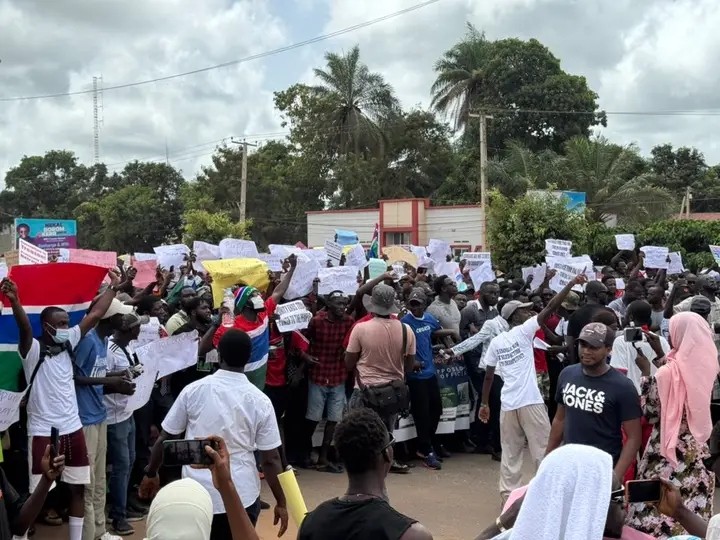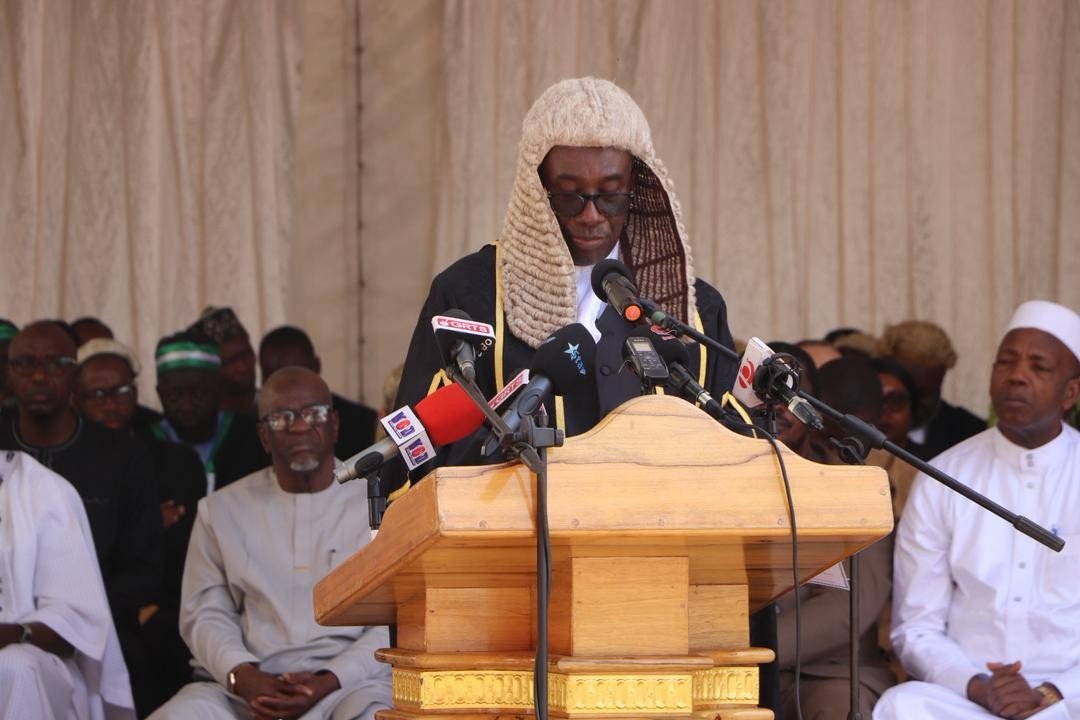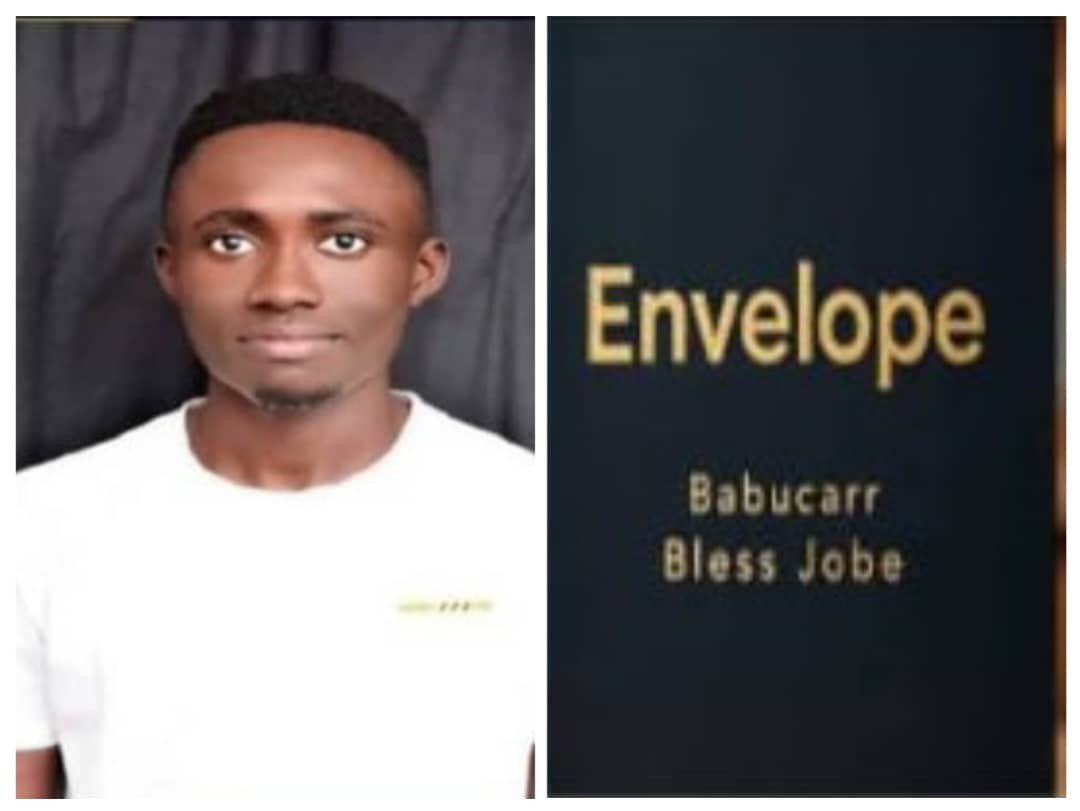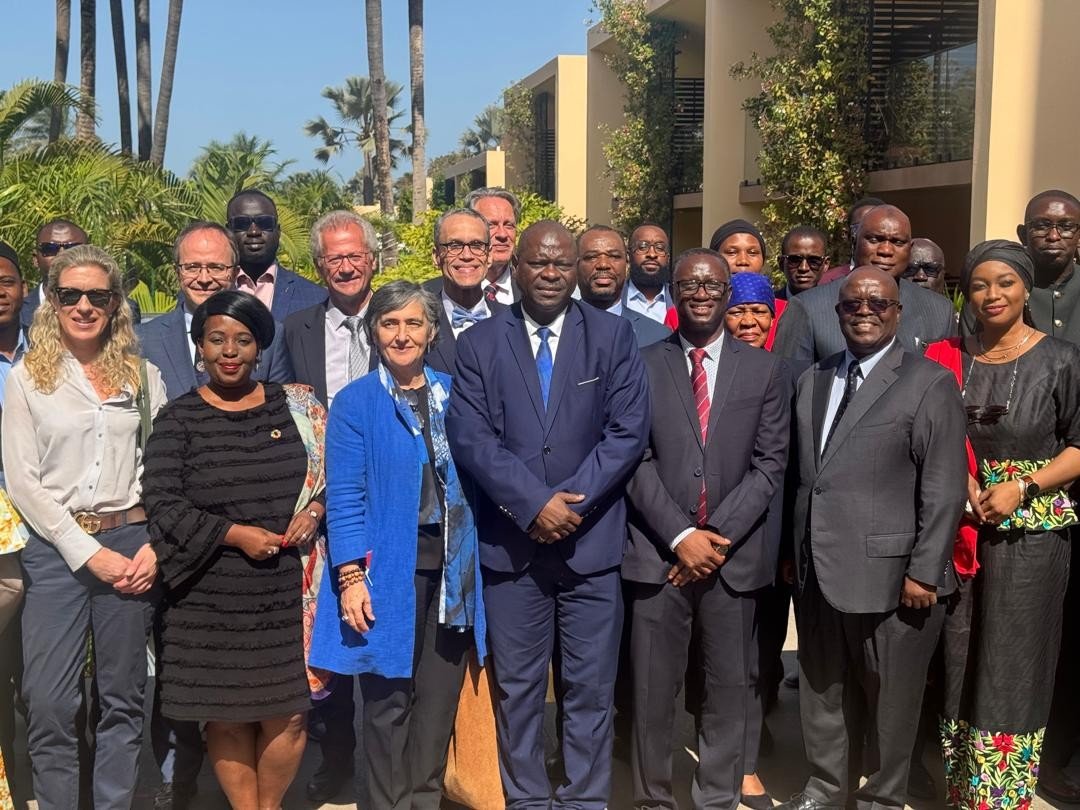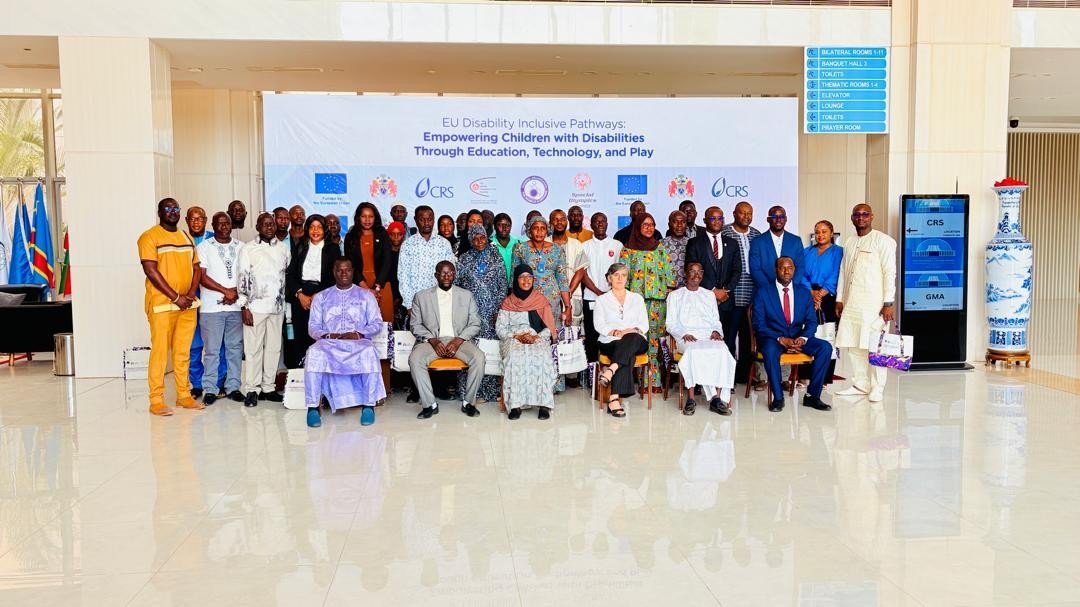Hundreds of Gambians, including young people, students, politicians, civil society activists, and women, yesterday flooded the streets of Kanifing in a powerful display of civic defiance, demanding accountability, transparency, and justice across the nation’s institutions.
Spearheaded by the youth-led movement Gambians Against Looted Assets (GALA), the protest saw marchers converge from Ice Man Junction to Westfield, submitting five meticulously detailed petitions targeting systemic corruption in government, and sectors including sport, local councils, public health, and land allocation.
Led by GALA spokesperson Omar Saibo Camara and Secretary General Ebrima Jallow, the protesters called for urgent investigations, institutional reforms, and the recovery of misappropriated public funds and assets.
The petitions addressed a litany of grievances, from alleged corruption in the Gambia Football Federation (GFF) to a $30 million petroleum scandal, the 2022 Acute Kidney Injury (AKI) crisis, mismanagement in local councils, and dubious land allocations. The demonstration, marked by fervent chants and placards decrying corruption and skyrocketing prices, underscored a growing public frustration with governance in The Gambia.
The protest initially faced resistance when representatives from the targeted institutions were absent to receive the petitions, prompting GALA to vow to remain at Westfield “until tomorrow” if necessary. This led to a brief standoff with security forces, raising tensions among the crowd.
However, the situation was defused when officials, including the Solicitor General, the Deputy Majority Leader of the National Assembly, and representatives from the National Sports Council arrived to accept the petitions, allowing the demonstration to conclude without further incident.
One of GALA’s most scathing petitions targeted the Gambia Football Federation (GFF), accusing it of systemic corruption and mismanagement of over $11 million in FIFA and CAF funds between 2014 and 2024. The petition highlighted incomplete and substandard infrastructure projects in Jarra Soma, Gunjur, Bakau, Banjul, Serrekunda East and West, Manjai, Brikama, Busumbala, as well as at the Goal and Biri Biri football fields.
GALA highlighted a conflict of interest involving GFF Vice President Bakary K. Jammeh, who also serves as the Project Manager for all GFF projects, raising concerns about oversight and accountability.
The group further alleged that FIFA support intended for clubs, referees, and women’s football had been diverted or withheld, with $1.5 million in COVID-19 relief funds from 2020 reportedly misappropriated. “We respectfully request a thorough investigation into GFF within a timeframe of two months effective today,” the petition demanded, setting a firm deadline for action.
In a direct appeal to President Adama Barrow, GALA’s second petition referenced the June 2025 National Assembly Joint Committee Report, which exposed rampant corruption in the petroleum sector.
However, the report implicated unlicensed operators such as Apogee FZC and Creed Energy Ltd, as well as sub-account transactions controlled by a foreign national. It also criticized regulatory failures by the Public Utilities Regulatory Authority (PURA), the Gambia Revenue Authority (GRA), and the Central Bank, alleging that some institutions interfered with police investigations.
“Unauthorized and unlicensed actors… operated in the petroleum sector without required licenses,” GALA wrote, accusing public institutions of failing to uphold due diligence. The petition demanded prosecutions, asset recovery, institutional reforms, and the establishment of a Public Inquiry Tribunal within one month.
The urgency of the timeline reflects the group’s frustration with the government’s perceived inaction on the scandal, which has cost the nation an estimated $30 million.
GALA’s third petition targeted the Gambia Association of Local Government Authorities (GALGA), the umbrella body for local councils. Citing recent audit reports, media investigations, and public testimonies, the group accused multiple councils of “gross financial mismanagement, abuse of public office, and looting of public resources”. GALA emphasised GALGA’s moral and institutional responsibility to lead anti-corruption efforts, stating: “GALGA must lead by example.”
The petition outlined a series of demands, including a public anti-corruption stance, the creation of an internal accountability committee, collaboration with the National Audit Office, full transparency of budgets and expenditures, and reforms to enhance citizen engagement. GALA gave GALGA two months to act, underscoring the need for swift and decisive measures to restore public trust.
The 2022–2023 Acute Kidney Injury (AKI) outbreak, which claimed the lives of children due to contaminated imported drugs, was the focus of GALA’s fourth petition, also addressed to President Barrow. The group called for the full implementation of the 29 recommendations from the National Assembly Select Committee’s investigation into the crisis. Key demands included operationalizing the National Medicines Quality Control Laboratory (NMQC), strengthening the independence and legal authority of the Medicines Control Agency (MCA) and Pharmacy Council (PCG), blacklisting Maiden Pharmaceuticals, and providing justice and compensation for victims’ families.
“This petition is submitted with the firm belief that a proactive, responsive, and accountable government must act decisively… within a timeframe of one month effective today,” GALA stated, pressing for immediate action to address the tragedy that shook the nation.
In its fifth petition, GALA urged the National Assembly to launch a Special Investigation into state land allocations between December 2017 and December 2024. The group alleged “illegal and discriminatory allocation of state land to privileged officials and non-Gambians,” leaving ordinary Gambians grappling with housing insecurity. “This deeply concerning situation represents a betrayal of public trust and a fundamental injustice,” the petition stated.
Additionally, GALA demanded an investigation into an alleged D300 million corruption scandal at the Gambia Ports Authority (GPA) and full accountability for institutions cited in audit reports. The group set a two-month deadline for the National Assembly to respond, emphasizing the need for transparency in the management of state assets.
Throughout the protest, GALA maintained an apolitical stance, framing its demands as a defence of public interest and democratic accountability. “We are not attacking institutions. We are demanding that they serve the people,” said Spokesperson Omar Saibo Camara. “Corruption is robbing Gambians of dignity, opportunities, and trust in public leadership.”
The marchers displayed placards calling for government action on corruption and rising prices, reflecting broader economic grievances. Despite the intensity of the protest, GALA reaffirmed its commitment to peaceful civic engagement and expressed readiness to pursue accountability through lawful means.
As of this publication, none of the petitioned institutions including the GFF, GALGA, GPA, or the Office of the President had issued formal responses to GALA’s allegations or the timelines outlined in the petitions.
The lack of immediate comment has fueled speculation about how these bodies will address the serious accusations levelled against them.
The July 23 protest marks a significant moment in The Gambia’s ongoing struggle against corruption. GALA’s ability to mobilize hundreds of citizens, including youth, lawmakers, and civil society actors, signals a growing demand for systemic change. By targeting multiple sectors – sport, petroleum, local governance, public health, and land allocation – the group has cast a wide net, exposing the breadth of alleged malfeasance in public institutions.
As The Gambia grapples with economic challenges and public discontent, GALA’s protest could catalyze broader reforms. The group’s insistence on strict timelines for action ranging from one to two months puts pressure on authorities to respond swiftly or risk further public unrest.


